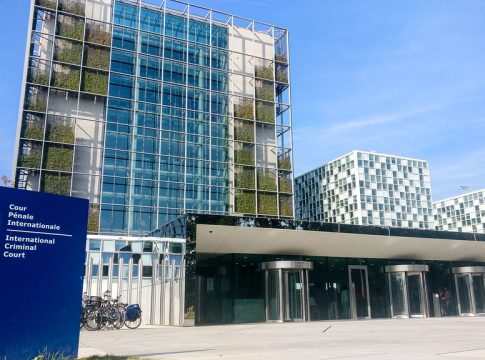Wagner Group’s Alleged Crimes in West Africa: A Disturbing New Report
Confidential ICC Brief Raises Alarming Accusations
In a disturbing revelation, a confidential report has been submitted to the International Criminal Court (ICC) detailing claims that the Russia-linked Wagner Group has committed grave international crimes in West Africa. The report, which has not been made public and lacks named authors, has been described by the Associated Press (AP) as unprecedented in alleging that the act of disseminating horrific imagery on social media could itself constitute a war crime.
Gruesome Allegations of War Crimes
The report outlines shocking footage that allegedly depicts members of the Wagner Group engaging in appalling acts, including butchering corpses and mutilating bodies. According to AP, the videos contain images of men in military uniforms performing these acts on individuals who appear to be civilians, with statements indicating intentions of cannibalism. They also reference confirmed evidence linking the content to real events and genuine military attire.
Experts suggest that even sharing such disturbing content could violate the threshold for war crimes under the Rome Statute—a legal framework for prosecuting such offenses.
Context of Armed Conflict
The Wagner Group, a private military contractor with ties to Russia, has reportedly been active in various global conflicts, including in Mali, where the report focuses on events occurring between December 2021 and July 2024. The armed forces of Mali, alongside the Wagner Group and Islamist militant organizations, have been locked in combat, with numerous accounts indicating abuses against civilians from all factions involved.
Given the ongoing conflicts, the violence described aligns with the requirements for categorizing these acts as war crimes under international law.
Legal Implications and Challenges Ahead
The legal framework for prosecuting such offenses hinges on establishing a "nexus to armed conflict" and whether the abuses were part of a broader plan or state policy. Additionally, the atrocities captured in the footage are cited as "outrages upon personal dignity," a category of war crimes that applies even to deceased individuals.
Moreover, the act of sharing this footage could fall under the definition of "crimes against humanity," as it inflicts profound suffering on both the direct victims and their families. The psychological impact on surviving loved ones, knowing that such images exist, compounds the gravity of these alleged crimes.
Moving Forward: A Call for Investigation
As the ICC has already opened an inquiry into the situation in Mali, the report’s findings could facilitate a more focused investigation into the alleged actions of the Wagner Group. However, challenges such as verifying the authenticity of online content and accessing original footage from social media platforms will need to be addressed.
The potential case serves as a poignant reminder of the profound impacts of digital communication in contemporary warfare and the urgent need for accountability in the face of such heinous acts. Legal experts hope that recognizing the importance of these new forms of evidence will enhance the ICC’s ability to deliver justice in the digital age.
The international community watches closely as developments unfold, emphasizing the imperative of addressing these serious allegations.

Focuses on crime, public safety, and regional events.
Bio: Marcus is a community-based journalist passionate about reporting impactful stories that matter most to readers.

